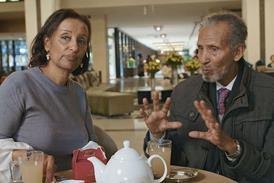General Electric was too big and powerful to overcome in the battle for the entertainment assets of Vivendi Universal, beaten suitor Edgar Bronfman said in his first interview since losing the auction.
"Look, they were GE. We weren't. GE is the most powerful company in the world. They decided they wanted this company. At the end of the day, they did what was necessary to get the Vivendi board to do the deal," Bronfman said in an interview on Fox News last night.
But the Vivendi vice chairman, who said he would be returning to his seat at Vivendi Universal board meetings, denied reported claims that he was "devastated" by the loss.
"As it turned out, it was a better deal for Vivendi than they had, you know, probably a week ago. But I feel great. I mean, we took the biggest company in the world to the last pitch of the last inning of probably one of the largest and most complex transactions ever done. We had great partners, Cablevision was fantastic, Tom Lee, Blackstone, we put together, you know, a multi-billion dollar bid," he said.
Bronfman, who appeared on Your World With Neil Cavuto, was giving his first interview since Tuesday's announcement that Vivendi had agreed to merge its entertainment assets, which include Universal Studios, into General Electric subsidiary NBC. Bronfman said he thought the deal, which will create a new $40bn media giant, "is going to go through."
Under the terms of the deal, three Vivendi executives will join the board of NBC Universal, but Bronfman, who is Vivendi Universal's largest shareholder, said the decision as whether he would be one of those executives had not yet been taken.
Bronfman ran Universal before selling out to Vivendi's former expansionist chairman Jean-Marie Messier three years ago. He admitted in the interview that he had been one of the executive board who had fought "to get him (Messier) out."
But the Vivendi vie chairman said it was too early to decide on his next move and declined to comment on a possible bid for Vivendi's music assets, not included in the VUE deal.
"I have always loved the music business, because I think it is a very good business. Right now it is a difficult business because I think it is going through a transition," he said.
"How long that transition will take, what the economic model of music will look like a year or two or three from now, I don't think anybody really knows with certainty. But it is interesting, and I've always enjoyed it. But I'm not making predictions as to what I'm going to do."



















No comments yet